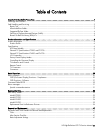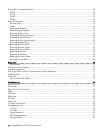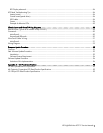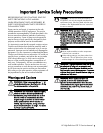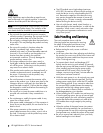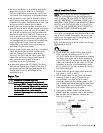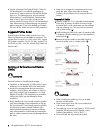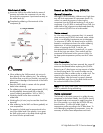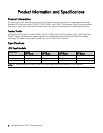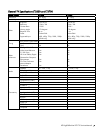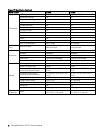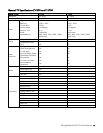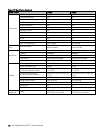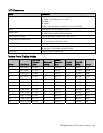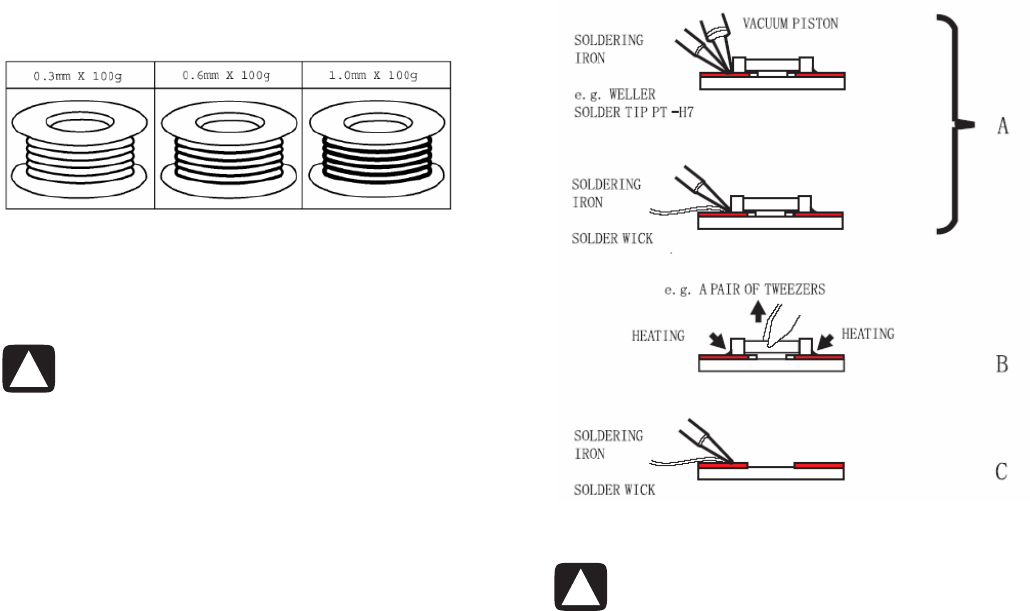
4 HP High-Definition LCD TV Service Manual
• Special information for Pb-free BGA-ICs: These ICs
will be delivered in so-called dry-packaging to
protect the IC against moisture and with the Pb-free
logo on it. This packaging may only be opened
shortly before it is used (soldered). Otherwise the
body of the IC gets wet inside, and during the
heating time the structure of the IC will be destroyed
from steam pressure. If the packaging was opened
before usage the IC has to be heated up for about
90 hours to dry. Make sure you use ESD protection!
Suggested Pb-Free Solder
Several kinds of Pb-free solder (some shown in the
following illustration) are available for purchase. This
product uses Sn+Ag+Cu (tin (SN), silver (AG), copper
(CU)) solder. However, Sn+Cu (tin (SN), copper (Cu)),
Sn+Zn+Bi (tin (SN), zinc (Zn), bismuth (Bi)) solder can
also be used.
Servicing of Surface-Mounted Devices
(SMDs)
CAUTIONS:
General cautions on handling and storage:
• Oxidation on the terminals of SMDs results in poor
soldering. Do not handle SMDs with bare hands.
• Avoid using storage places that are sensitive to
oxidation, such as places with sulphur or chlorine
gas, direct sunlight, high temperatures, or a high
degree of humidity. The capacitance or resistance
value of the SMDs may be affected by these
conditions.
• Rough handling of circuit boards containing SMDs
may cause damage to the components as well as
the circuit boards. Circuit boards containing SMDs
should never be bent or flexed. Different circuit
board materials expand and contract at different
rates when heated or cooled and the components
and/or solder connections may be damaged due to
the stress.
• Never rub or scrape chip components as this may
cause the value of the component to change.
Similarly, do not slide the circuit board across any
surface.
Removal of SMDs
1 Heat the solder (for 2 to 3 seconds) at each terminal
of the chip. By means of soldier wick and a slight
horizontal force, small components can be removed
with the soldering iron. They can also be removed
with a solder sucker (A).
2 While holding the SMD with a pair of tweezers, take
it off gently using the soldering iron’s heat applied to
each terminal (B).
3 Remove the excess solder on the solder lands by
means of soldier wick or a solder sucker (C).
CAUTIONS:
• When handling the soldering iron, use suitable
pressure and be careful.
• When removing the chip, do not use undue force
with the pair of tweezers.
• The soldering iron to be used (approx. 30 W) should
preferably be equipped with a thermal control
(soldering temperature: 360º to 380º C).
• Once removed, the chip cannot be reused.





